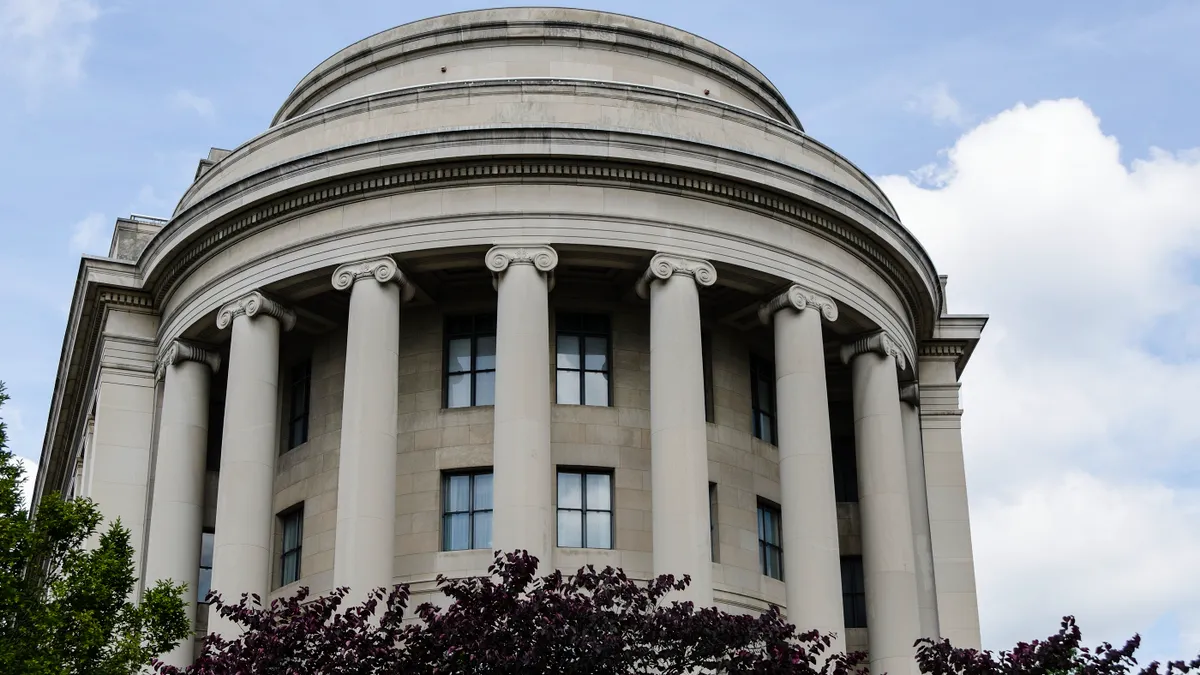Dive Brief:
-
The Federal Trade Commission has amended a complaint against Amazon, filed in June and alleging deceptive practices around Prime membership, to include three senior Amazon executives by name, as well as previously redacted details from internal company messages.
-
The three executives are Neil Lindsay, previously senior vice president overseeing Prime and now on Amazon’s overall leadership team; Russell Grandinetti, a senior vice president overseeing Prime; and Jamil Ghani, a vice president who oversees the Prime subscription program, per the FTC’s Wednesday press release.
-
In an emailed statement, Amazon said that adding the three executives is unwarranted. “These leaders have worked tirelessly to make Prime an exceptional program that customers love, and they have our full support,” the company said. “To claim that their efforts were made in anything but the utmost good faith is unfounded and represents a radical departure from the FTC’s own standards for such claims.”
Dive Insight:
The FTC in this case is naming names and bringing receipts.
Amazon’s Prime membership, which costs $14.99 a month, or $139 annually, is central to its ecosystem. There are signs that U.S. membership has fallen off in recent years. The FTC describes a process — codenamed by Amazon as “Iliad,” a story of the relentless Trojan War — where customers are duped into signing up for a membership or out of quitting it.
“Specifically, Amazon used manipulative, coercive, or deceptive user-interface designs known as ‘dark patterns’ to trick consumers into enrolling in automatically-renewing Prime subscriptions,” the FTC said in its complaint.
Via emails, meetings and other means, some Amazon employees told the executives now named in the amended document that some processes were unfair and encouraged changing them, per the complaint.
“The way I see it, we are not winning for customers by ignoring the simple and obvious lack of information but applauding a business gain,” according to one message allegedly sent to Ghani. “We congratulate when someone changes a headline color, or the style of a table, but don’t notice we are not even telling customers what they are signing up for ... .”
The FTC also alleges that in a draft internal memo, Amazon decided against clarifying the enrollment process “because it would cause a ‘shock’ to business performance.”
Revealing names of specific executives involved in unscrupulous behavior is an important step in ensuring that companies face consequences, according to James Angel, Associate Professor of Finance at Georgetown University’s McDonough School of Business.
“One of the big tragedies of the 2008 financial crisis is how few individuals were punished for their roles in the mess,” he said by email. “It looks like the FTC is finally learning that individuals need to be held accountable for sleazy practices.”
Doing so also “sends a strong message to people that they can be held personally responsible,” he said.
“If the government only goes after corporations, individuals will be tempted to do sleazy things,” he said. “Chances are they will have moved on before the government takes enforcement action against the corporation. But if the government goes after the individuals, they could still be punished.”
















